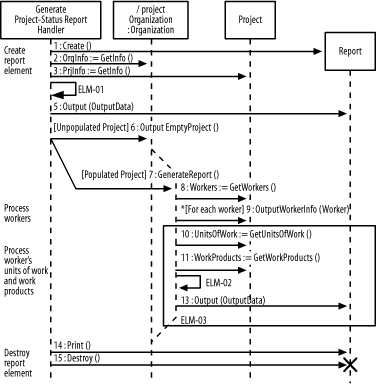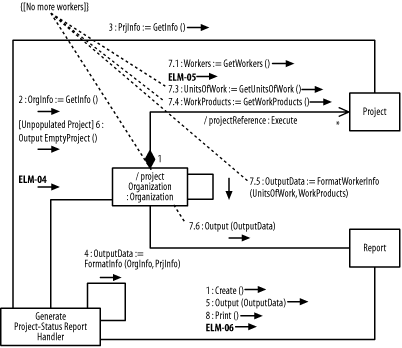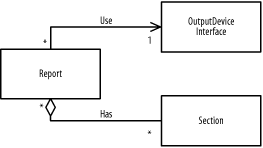6.6 Exercises
Solutions to these exercises are supplied in Section B.2.1
Figure 6-30 shows a sequence diagram, and Figure 6-31 shows a collaboration diagram. These figures
are equivalent; that is, they have the same elements. Identify the
missing communications and guard expression and describe the
interaction and collaboration. The missing communications in Figure 6-30 are labeled ELM-01 and
ELM-02. The missing guard expression in Figure 6-30 is labeled ELM-03. The
missing communications in Figure 6-31 are labeled
ELM-04, ELM-05, and
ELM-06.

 Describe Figures Figure 6-32 and Figure 6-33: identify the various elements. These elements
are used for generating a report and its sections.


Update the diagrams stepwise to show the following interaction and
collaboration. After each step, check your answers against the
solutions shown in Appendix B:
For each section, the Report element retrieves the
section's data using the OutputData :=
GetData ( ) communication sent to the
Section element, and formats the data using the
OutputData := FormatData (OutputData)
communication sent to itself. If the section's data is not summary data, the
Report element simply outputs the data to the
OutputPrinterInterface element using the
OutputNonSummaryData
(OutputData) communication sent to the
OutputPrinterInterface element. If the section's data is summary data, the
Report element simply outputs the data to the
OutputPrinterInterface element using the
OutputSummaryData (OutputData)
communication sent to the OutputPrinterInterface
element.
|